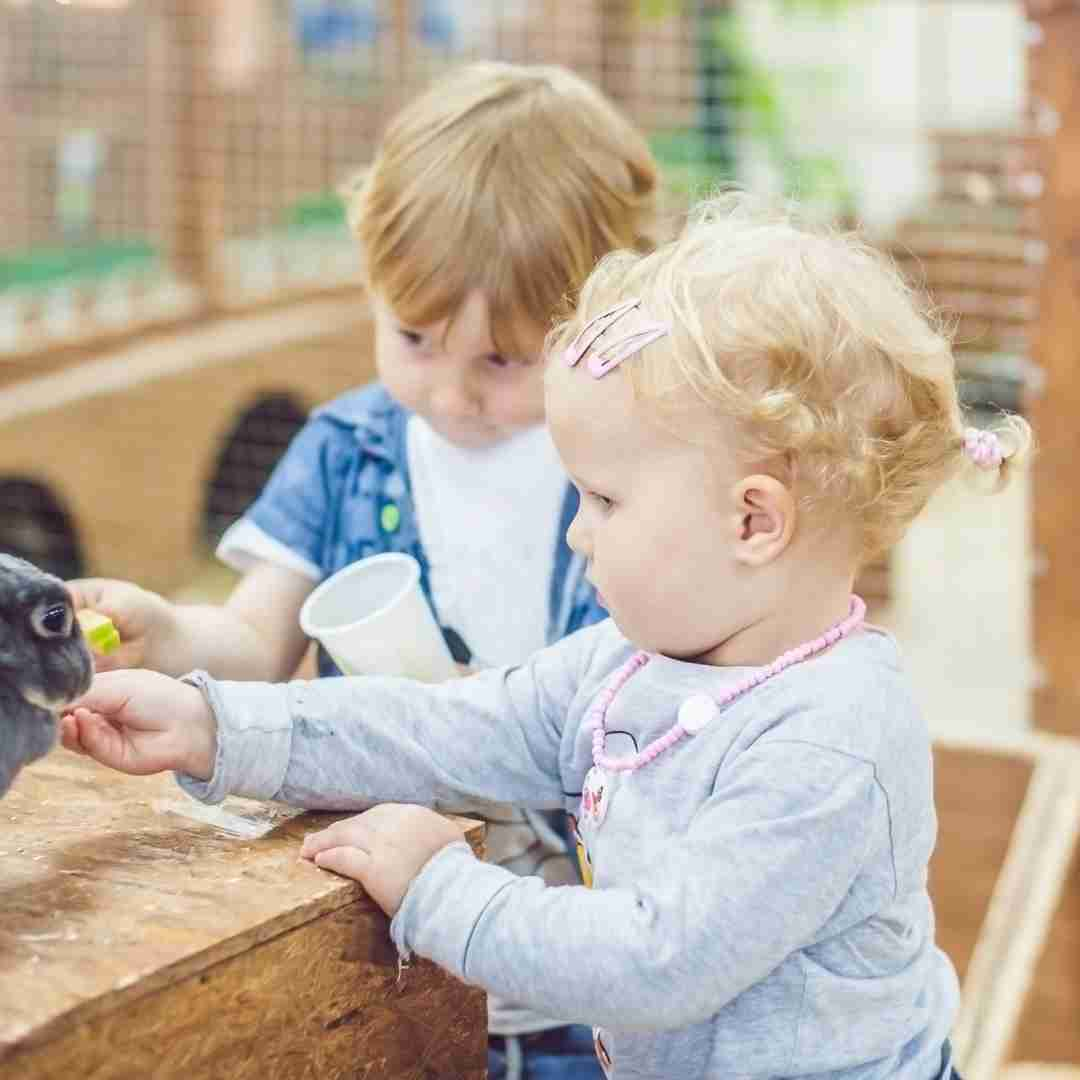How to Feed Older Rabbits
All rabbits need good diet, but elderly rabbits need it more. As rabbits age, their dietary needs change, so they need the correct nourishment to stay healthy and happy.
Starting with new hay is the first step in feeding an older rabbit. Older rabbits should eat mostly hay, which is strong in fibre and assists their digestive systems. Hay with dust and mould can cause respiratory issues, so offer clean hay.
Older rabbits need hay and fresh veggies. Vitamins and minerals in vegetables are necessary for older rabbits. Calcium- and mineral-rich leafy vegetables like kale and spinach are healthy. Carrots, celery, and bell peppers are also options.
Older rabbits need high-quality pellet food also. Pellets are designed for rabbits and contain nutrients not available in hay or vegetables. Pellets are heavy in calories and can cause obesity in older rabbits, thus they should be eaten sparingly.
Finally, an older rabbit needs fresh water at all times. Water helps rabbits digest and stay hydrated. To keep water clean and bacteria-free, change it everyday.
Following these rules will guarantee your older rabbit gets the nutrition it needs to stay healthy and happy.
Older Rabbit Grooming Tips
1. Brush your rabbit regularly: Older rabbits may have trouble grooming themselves, so brush them regularly to keep their fur clean and mat-free. Brush gently with a light brush.
2. Trim their nails: Older rabbits may have overgrown nails. Maintain comfortable nail length by trimming them regularly.
3. Check their teeth: Older rabbits may have dental difficulties, so check them often. If your rabbit has dental issues like discolouration or overgrowth, take it to the vet.
4. Clean their ears: Older rabbits may have trouble cleaning their ears, so inspect and clean them periodically. Use a wet cloth to gently remove dirt and debris.
5. Bathe your rabbit: Older rabbits may need more baths. Wash with a gentle shampoo and warm water and rinse well.
6. Check for parasites: Fleas, mites, and other parasites may be more common in older rabbits, so check them periodically. If your rabbit has parasites, take it to the vet.
7. Comfort: Older rabbits may have trouble controlling their body temperature, so give a pleasant environment. Keep their enclosure draught-free and give comfy bedding.
Making Older Rabbits Comfortable
Older rabbits need a cosy environment to stay healthy. Rabbits are gregarious and need lots of area to roam. Tips for making your elder rabbit comfortable:
1. Give a big enclosure. Older rabbits require lots of area to explore. A big enclosure with lots of room to hop and play is great. Make the enclosure escape-proof and include many hiding places.
2. Provide lots of toys and activities. Older rabbits need lots of stimulation to stay active. Keep them engaged with tunnels, balls, and chew toys.
3. Provide a comfy bed. Old rabbits need a cosy place to sleep. Offer a nice bed or blanket to snuggle in.
4. Feed healthily. A balanced diet keeps older rabbits healthy. Give them a variety of fresh veggies, hay, and pellets to acquire enough nutrients.
5. Provide regular vet care. Older rabbits need regular checkups to keep healthy. Visit the vet regularly for rabbit checkups and immunisations.
Follow these methods to make your senior rabbit comfortable. This will keep them healthy and happy for years.
Older Rabbits Benefit from Exercise
Any animal needs exercise, but elderly bunnies need it more. Regular exercise helps keep older rabbits healthy and fit and increase their lifetime. Exercise has several benefits for elderly rabbits.
Exercise keeps aged rabbits' muscles robust and healthy. Senior rabbits may lose muscle strength and flexibility. Regular exercise keeps muscles strong and flexible, reducing injury risk. Exercise can also enhance balance and coordination, preventing falls and other injuries.
Second, exercising helps aged rabbits' hearts. Regular exercise can strengthen their hearts and lower their heart disease risk. Other health issues like obesity and diabetes can be reduced by exercise.
Third, exercising helps older rabbits think. Regular exercise can keep their brains active and alert, reducing cognitive deterioration. Reduced stress and anxiety from exercise can improve their quality of life.
Finally, activity strengthens older rabbit bones. Regular exercise can strengthen bones and minimise osteoporosis risk. Exercise lowers the risk of arthritis and other joint issues.
Exercise is vital for older rabbits. Regular exercise can strengthen their muscles, hearts, minds, and bones, reducing the chance of injury, sickness, and other health issues. Their quality of life can also improve with exercise.
How to Identify and Treat Common Older Rabbit Health Issues
Elderly rabbits are more susceptible to health difficulties. Knowing the indicators of common health conditions in elderly rabbits helps treat them quickly. This article covers the most frequent health issues in elderly rabbits and how to address them.
The most common health issue in older rabbits is tooth disease. Rabbit teeth grow regularly, and if they are not chewed, they can get enlarged and cause pain and difficulties eating. Drooling, hunger loss, and weight loss indicate oral illness. To diagnose and treat dental disease in rabbits, visit a vet. Treatment may include tooth trimming, antibiotics, and painkillers.
Older rabbits often have arthritis. Over time, joint wear and tear causes arthritis, which can cause pain and trouble moving. Arthritis causes limping, unwillingness to move, and jumping problems. Treatment for arthritis includes painkillers, anti-inflammatories, and physical therapy.
Older rabbits often have digestive difficulties. Diet, stress, and parasites can cause gastrointestinal difficulties. Diarrhoea, vomiting, and appetite loss indicate gastrointestinal disorders. Dietary adjustments, medicines, and deworming may treat gastrointestinal disorders.
Urinary tract infections are more common in older rabbits. Frequent urination, straining, and blood in the urine indicate a UTI. Urinary tract infections may require medications and diet adjustments.
In conclusion, elder rabbits should be known for common health conditions so they may be treated quickly. If you think your rabbit has any of the health conditions listed in this page, take it to the vet.